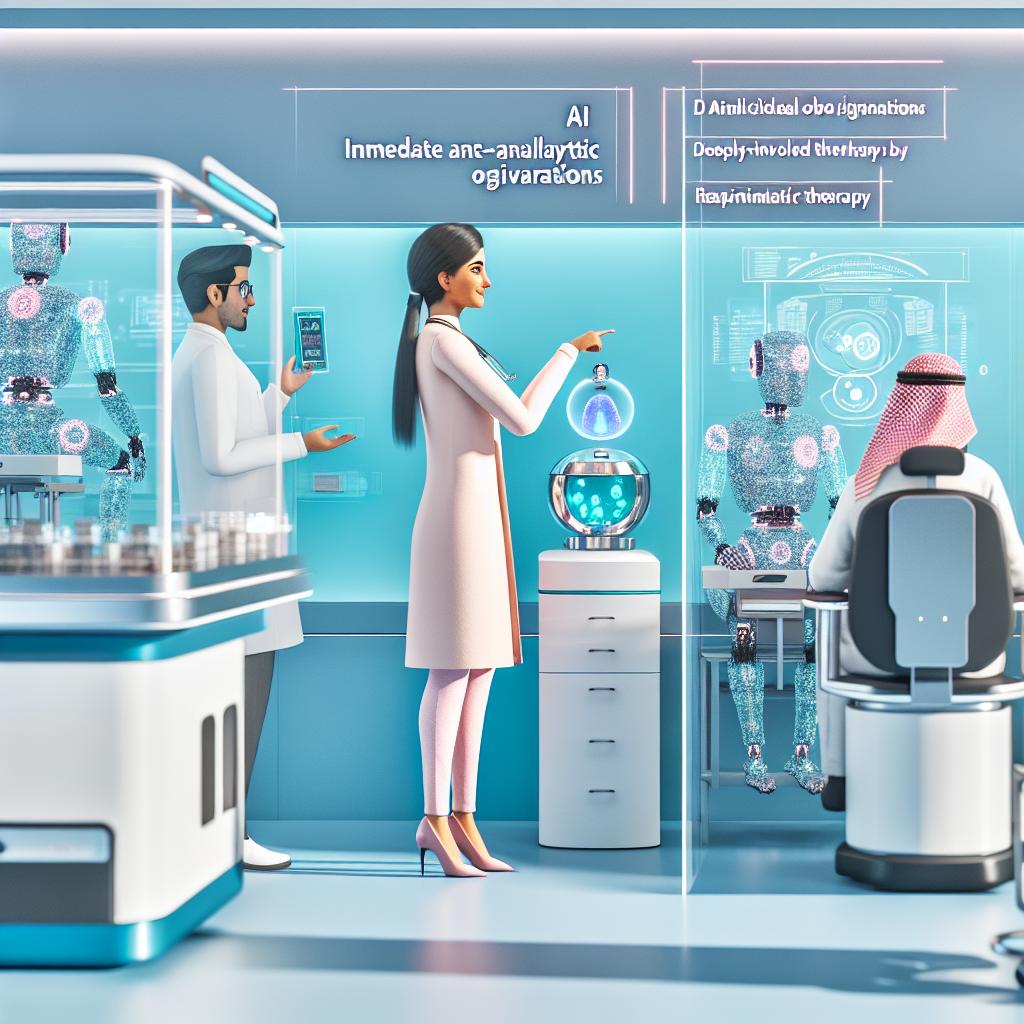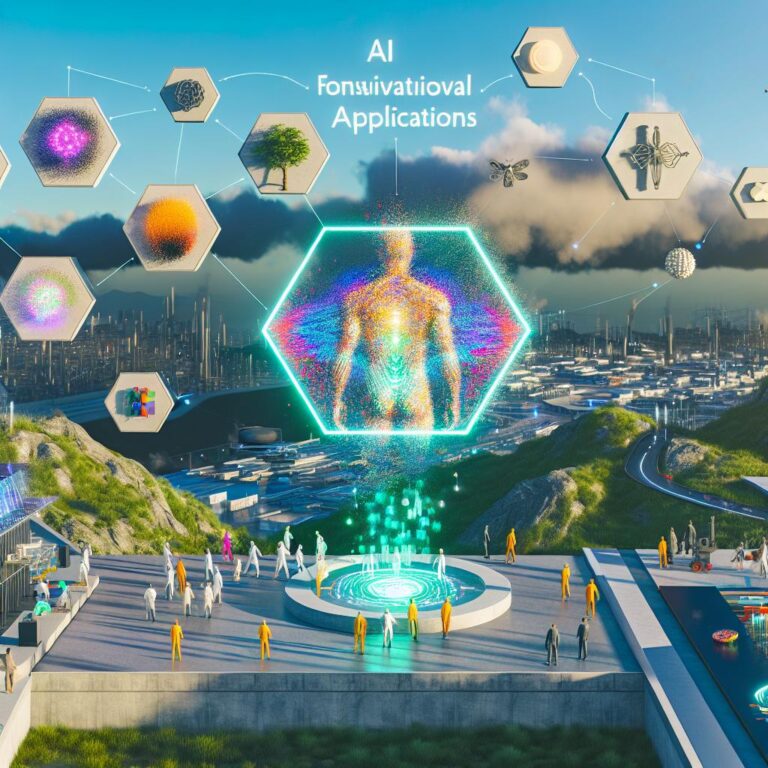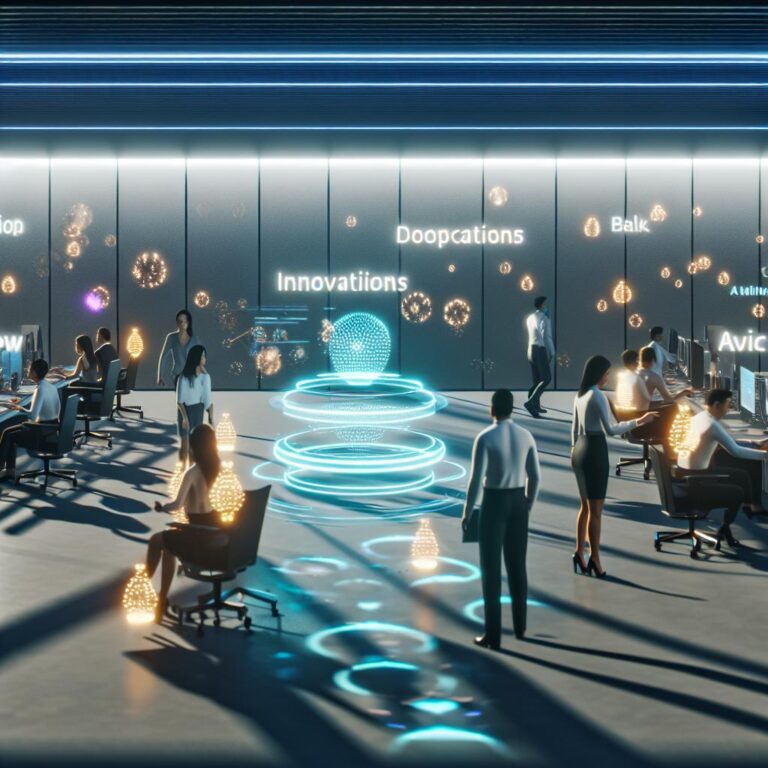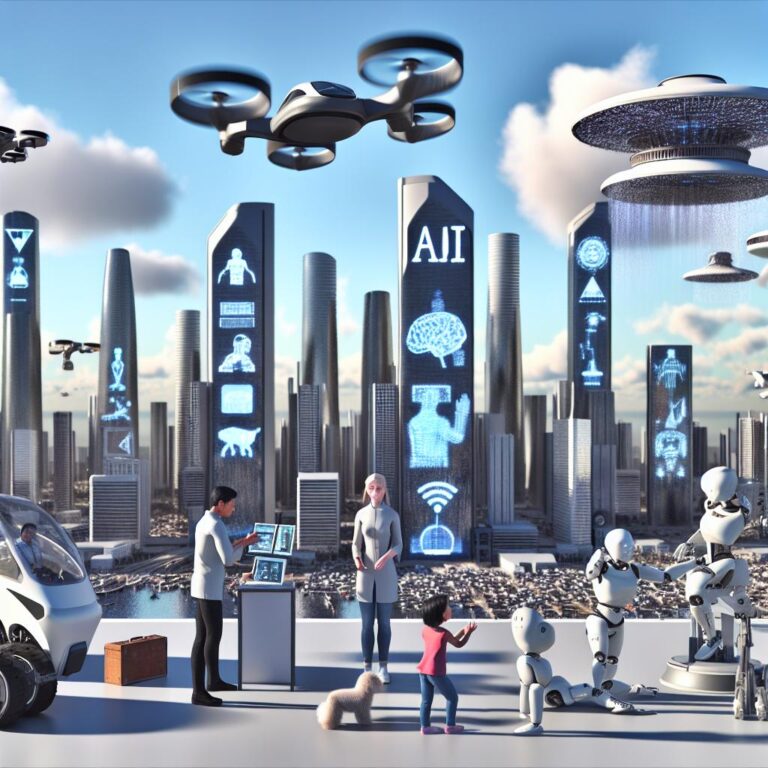Generative AI in Healthcare: What Are Its Key Uses?
Generative AI in Healthcare: Key Applications and Challenges
- Drug Discovery & Medical Imaging: Speeds up new drug discovery by analyzing large data sets and improves medical imaging accuracy by spotting issues such as tumors.
- Personalized Medicine: Tailors treatments based on genetic data, leading to better outcomes and fewer side effects.
- Patient Data Management: Enhances efficiency and security in managing patient records, simplifies administrative tasks, and reduces human error.
- Challenges: Includes ethical concerns, data security, bias, need for human oversight, high costs, and training needs.
- Benefits: Improves efficiency, accuracy, potential $1 trillion savings, enhances diagnostic speed, and reduces administrative burdens.
- Future Trends: Expected to aid in disease diagnosis and drug development, influence healthcare startup innovation, and improve patient care strategies.
- Addressing Risks: Requires attention to data security, ethical compliance, and bias management for successful integration.
Generative AI is transforming healthcare, and I'm eager to dive in. From discovering new drugs to helping manage patient data, the potential is vast. Imagine AI as a partner in healthcare, creating personalized treatments and improving medical imaging. This innovation doesn't just support current systems; it reimagines them. Join me as we explore key uses and benefits in healthcare, tackling challenges with insightful examples.
What are the key applications of generative AI in healthcare?
How is generative AI used in drug discovery and medical imaging analysis?
Generative AI speeds up new drug discovery by analyzing large data quickly. AI models can predict how a drug might work. They help in exploring new drug formulations faster than before. It looks for patterns that hint at future success, saving time and resources.
In medical imaging, AI can spot issues like tumors better than humans. It analyzes MRI or CT scans for doctors. This technology reduces human error, leading to more accurate diagnoses. With its help, rare diseases may also be spotted earlier with improved accuracy. Check out this McKinsey article to learn more about how this is tackled.
What role does generative AI play in personalized medicine?
AI helps create targeted treatments for individual patients. It analyzes genetic information to tailor medicines. The AI model looks at a person's data to devise a specialized treatment plan. This means treatments could work better with fewer side effects. Doctors use AI insights to offer the right medication dose at the right time.
Patients with chronic diseases like diabetes or cancer might benefit the most. AI allows us to predict who might respond to treatment better. Thus, leading to better health outcomes and more efficient healthcare systems, personalizing healthcare improves user satisfaction.
In what ways can patient data management benefit from generative AI?
AI manages tons of patient data securely and efficiently. Instead of piles of notes, AI processes and stores information neatly. It turns patient interactions into clinician notes almost instantly. Clinicians find information at their fingertips whenever they need it. This eases the workload for staff and reduces the time spent on administrative tasks.
AI models simplify billing, appointments, and tracking treatment history. This allows clinics and hospitals to maintain accurate records digitally. Gen AI also helps in ensuring privacy by keeping sensitive data secure. Human oversight is vital to ensure the accuracy of the information processed with AI support. These benefits help doctors focus more on patient care rather than documentation.
Generative AI in healthcare is not without challenges. Data security, bias, and ethical issues need addressing. With cautious handling, AI promises a future in healthcare full of potential breakthroughs, high-quality care, and cost savings.
What are the benefits of generative AI in the healthcare industry?
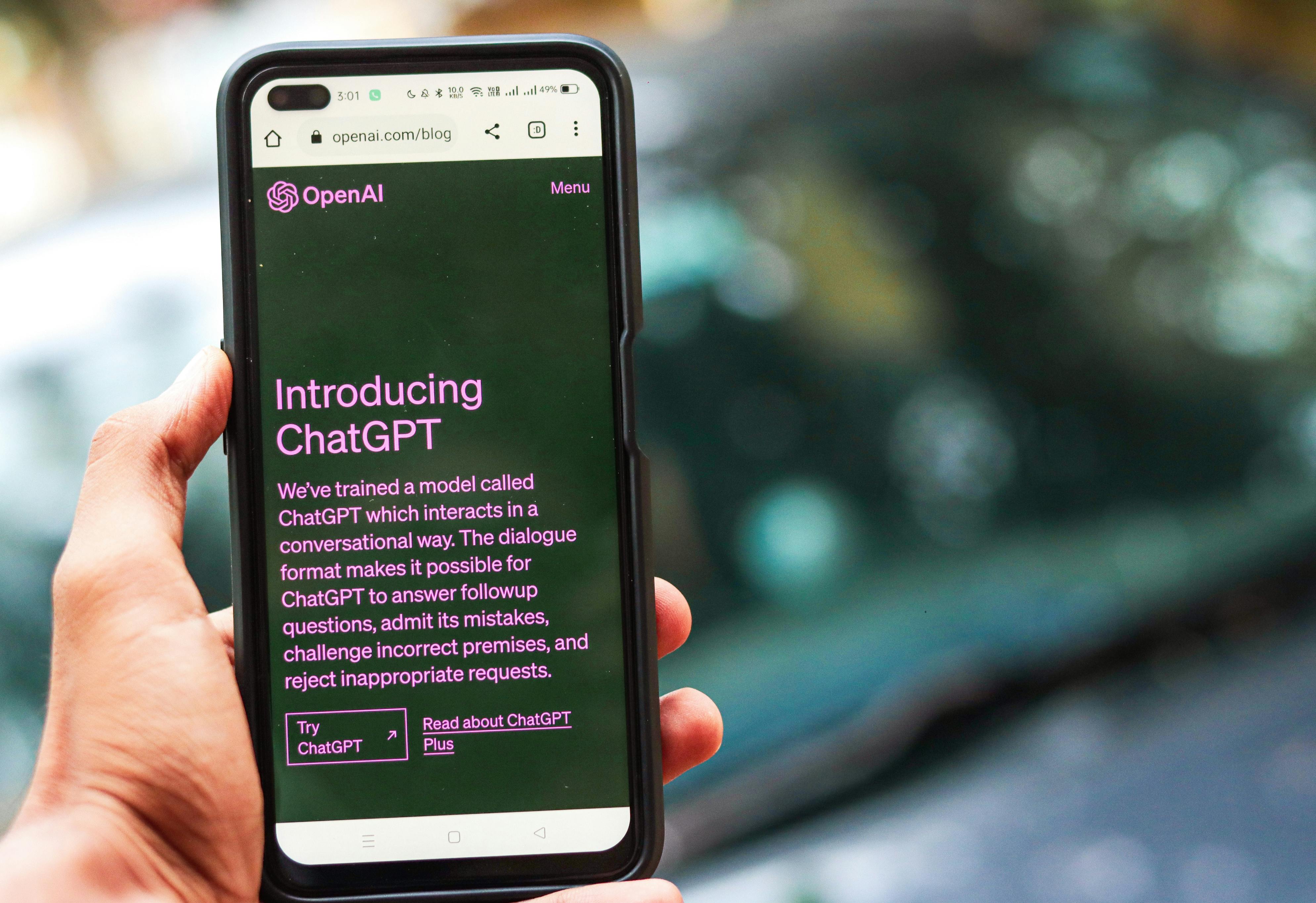
Generative AI is changing healthcare by improving speed and accuracy in operations. Imagine a world where doctors don't spend hours writing notes. Thanks to generative AI, doctors can convert patient talks into notes right away. This means they spend more time caring and less time writing. Not only does it free up time, but it also reduces mistakes that often happen with manual typing.
Generative AI processes not just words but also complex images. It helps in analyzing X-rays, MRIs, or other diagnostic images fast. This speed and precision make treatments more effective, ensuring patients get the right care. AI performs these tasks without getting tired, which boosts its accuracy compared to human efforts.
In healthcare, many challenges demand smart solutions, and generative AI provides them. For private payers, one significant challenge is claims processing. Generative AI tools speed up this process. What usually takes ten days to authorize can now happen almost instantly. Imagine the relief for patients and providers alike when claims don't wait for weeks.
Hospitals often deal with many manual tasks. With AI, tasks like staffing and finance become more efficient. It quickly processes data that usually needs lots of human work. This change reduces time wasted and eliminates human error, leading to smooth workflow and better patient care.
Generative AI is also transforming how healthcare systems operate by modernizing data handling methods. It turns piles of clinical data into actionable insights. These insights help clinicians make quick, informed decisions. By doing so, generative AI brings massive improvement to healthcare infrastructures. Moreover, AI opens doors to more preventive care by recognizing patterns in health data that point to future issues.
The benefits are significant. Human oversight, though, is necessary to prevent mistakes. AI is powerful, but it sometimes produces incorrect outputs if not monitored properly. A "human in the loop" ensures that AI suggestions align with human judgment. Without this, you risk errors in critical decisions like patient diagnoses.
Besides, healthcare executives find that integrating generative AI could save up to a trillion dollars. Imagine the impact across hospitals, reducing unnecessary costs and improving care quality. To achieve this, organizations must update their data systems. They need broad, quality data sets for accurate AI outputs.
Generative AI also faces challenges, like data security concerns. Sensitive patient data must stay confidential. Legal and compliance frameworks help manage AI's safe use. Bias in AI outputs can happen, impacting fairness in care delivery, so avoiding this begins with diverse data sets.
Using generative AI in healthcare isn't cheap. It requires investment in technology and training. Healthcare workers need to understand these new tools well to use them effectively. Without proper training, staff may feel overwhelmed, especially in demanding environments where burnout is common.
Hospitals, administrators, and clinicians should collaborate. Working together, they ensure AI supports, not complicates, healthcare operations. Though challenges exist, the potential of generative AI is huge. It's essential to use it wisely to truly transform healthcare for the better. For more detailed insights, this Deloitte article on generative AI in healthcare makes a good read.
What are the challenges and limitations of generative AI in healthcare?

Generative AI in healthcare offers many advantages. However, it also faces serious challenges. These obstacles can limit its effectiveness. Let's explore these issues.
What are the key ethical considerations for generative AI in medical treatments?
Ethical concerns with generative AI in healthcare include privacy, consent, and guidelines. First, privacy is a big challenge. Generative AI uses vast amounts of data. Protecting patient confidentiality is vital. Patients' personal data should be secure and private.
Next is consent. Patients should know how their data is used. This includes AI’s role in their care decisions. Clear communication and permissions are essential. Without consent, patients may feel their rights are overlooked.
Also, follow guidelines set by health authorities. Guidelines help ensure AI is used properly. Failure to comply can lead to misuse, risking harm to patients. Healthcare providers must follow best practices. This ensures safe and fair use of AI in treatments.
Finally, human oversight is necessary. AI might make errors. Experts need to review AI outputs to minimize mistakes. This "human in the loop" approach ensures safety and trust in outcomes.
Read more about ethical challenges of AI.
How do data security concerns impact the use of generative AI in healthcare?
Data security is critical for AI systems in healthcare. AI uses sensitive medical records. Protecting this data from hackers is vital. A breach can harm patient trust.
Healthcare data is a prime target for cyberattacks. Hackers might exploit vulnerabilities in AI systems. This can result in data theft or system shutdowns.
To improve data security, use strong encryption. Encrypting data makes it harder for unauthorized access. Secure data storage and transmission are crucial.
Implement security audits. Regular checks identify weaknesses in systems. This helps in strengthening defenses before breaches occur.
AI systems should have limited access to data. Only authorized users should have data privileges. This minimizes the risk of unauthorized access.
Healthcare providers must abide by legal standards (e.g., HIPAA in the US). These regulations enforce strict data protection practices. Compliance ensures patient data safety.
What are the potential biases and risks associated with generative AI?
Bias is another challenge for generative AI. AI can reflect human biases in datasets. If input data is biased, outputs will be too. Bias can affect diagnosis and treatment unfairly.
Consider a scenario where AI is trained mostly on data from one group. This might lead to poorer outcomes for underrepresented groups. Diverse datasets are necessary to train unbiased AI.
Bias also affects clinical decisions. AI may suggest ineffective treatments for certain groups. These errors can widen health disparities.
Minimizing bias requires diverse and balanced datasets. Regular audits can identify biases early. Adjustments should be made to AI training data accordingly.
There is also a risk of AI-generated errors. AI systems might make wrong predictions based on incorrect data patterns. This can lead to mistreatments or miss important diagnoses.
Healthcare providers must ensure AI outputs are correct. Verification by humans helps check the AI's findings. This reduces the impact of potential errors on patient care.
In summary, while generative AI in healthcare opens new opportunities, challenges like ethics, security, and bias need addressing. Solutions involve strict ethical practices, robust data security, and diligent monitoring to ensure successful AI integration.
How do real-world examples and case studies illustrate the impact of generative AI in healthcare?
When we look at successful generative AI projects in healthcare, some fascinating examples come to mind. One prominent case is Mayo Clinic. They use AI to analyze complex medical data. This helps doctors in making more informed decisions quickly. Generative AI can turn patient interactions into clinician notes without delay, streamlining workflows for medical staff.
Another great example comes from the realm of medical imaging. Some hospitals now use AI to improve diagnostic accuracy. AI can read and interpret scans faster than the human eye. This makes it a powerful tool for detecting diseases early. For instance, it offers new hope for early cancer detection by spotting subtle anomalies in imaging.
Hospitals are also embracing AI to enhance operational efficiency. It is not just about clinical improvements—AI is saving money and time in hospital management. By automating administrative tasks, AI cuts costs and lessens human errors. This means that the hospital staff can focus more on patient care instead of paperwork.
To understand how hospitals have successfully implemented generative AI, consider the case of Stanford Health Care. They began using AI technologies to manage patient flow and staffing needs. AI helps predict patient admissions and optimize resource use. This reduces wait times and improves care quality.
In administrative functions, AI supports faster claims processing for insurers. The technology streamlines the process, reducing the average authorization time from days to minutes. Hospitals and insurers alike see reduced manual effort and improved accuracy.
From these examples and case studies, several lessons emerge for implementing generative AI in healthcare. First, early results show that AI must be integrated into existing systems seamlessly. The technology should not burden medical staff. But rather, it should act as an extension of their capabilities.
Moreover, projects need solid data foundations for AI to work well. This means fostering close collaboration between IT staff and clinical teams. A strong, well-managed data infrastructure fosters trust in AI outputs. Efficient frameworks prevent technology silos and ensure comprehensive data utilization.
AI technicians and health professionals must work together. This cross-functional approach minimizes risks associated with data biases and security. Proper strategies help manage the sensitive information involved, ensuring legal and ethical compliance.
Early adoption projects have shown that many hands-on experiences, or "human loops," improve AI's reliability. Human supervision is necessary to adjust AI-generated insights. Healthcare providers benefit most when they pair AI suggestions with human expertise.
Investment in training healthcare staff is also necessary. This empowers professionals to harness AI's full potential. Training ensures systems run smoothly without increasing doctors' workloads. Burnout concerns highlight the importance of user-friendly AI interfaces.
In conclusion, the real-world success stories of generative AI serve as a blueprint. They showcase the enormous potential of this technology in healthcare but also underline essential considerations. The growth of generative AI in medical fields looks very promising, offering new solutions to old challenges while improving care quality and efficiency.
What trends and future directions are anticipated for generative AI in healthcare?

Generative AI is changing fast, especially in healthcare. One big area of growth is research. What are the promising future research paths for generative AI in healthcare? Gen AI is expected to improve research in diagnosing diseases. Researchers use it to understand diseases with more data. This helps doctors find diseases earlier and make better choices. Gen AI can also help create new drugs faster. By generating and testing drug ideas, researchers save time and resources.
Now let's look at startups. How is generative AI expected to shape healthcare startups and market trends? Gen AI makes startups more innovative. With AI, they can create new tools and services that hospitals need. For example, AI can automate paperwork which saves time. This allows healthcare workers to focus more on patient care. As AI technology advances, talented people want to work at these startups. This makes them grow and succeed even more.
There's a big change coming to healthcare strategies too. What role will generative AI play in future AI-enhanced healthcare strategies? Gen AI can change strategies by improving patient care. With AI, hospitals can manage patient data better and help doctors make quick decisions. Imagine receiving a personalized treatment plan, crafted just for you, based on data from many patients. This could become normal thanks to AI.
The AI technology even helps other parts of health systems. Right now, Gen AI speeds up how health insurance works. Insurers can decide claims faster, reducing waiting time for patients. Efficiency and speed are vital, giving healthcare systems the ability to make better decisions quickly.
While the potential is huge, there are challenges too. Data security is a major concern. AI systems need lots of data, and this data must be protected to ensure privacy. Bias in AI decisions also needs attention. If AI is trained with biased data, it might make unfair decisions. Healthcare providers need to plan how they use AI safely and fairly.
So, the future of Gen AI in healthcare is full of possibilities. By speeding up research, boosting startups, and refining strategies, AI can transform healthcare. It’s important we pay attention to how we use this powerful tool, focusing on safe and fair applications. This can make a big difference in how care is given, not just in technology but in real lives improved every day.
Conclusion
Generative AI is transforming healthcare in many ways. It helps discover drugs, analyze images, and personalize medicine. It also improves data management, speed, and accuracy in operations. Despite its potential, challenges like ethics and data security remain vital concerns. Real-world examples show its success and guide future trends. The future holds promise for AI in shaping strategies and startups, pushing the boundaries of medical innovation. As we look ahead, the focus will remain on navigating ethical issues and enhancing AI applications in healthcare. The mix of challenges and opportunities ensures an exciting path forward.

